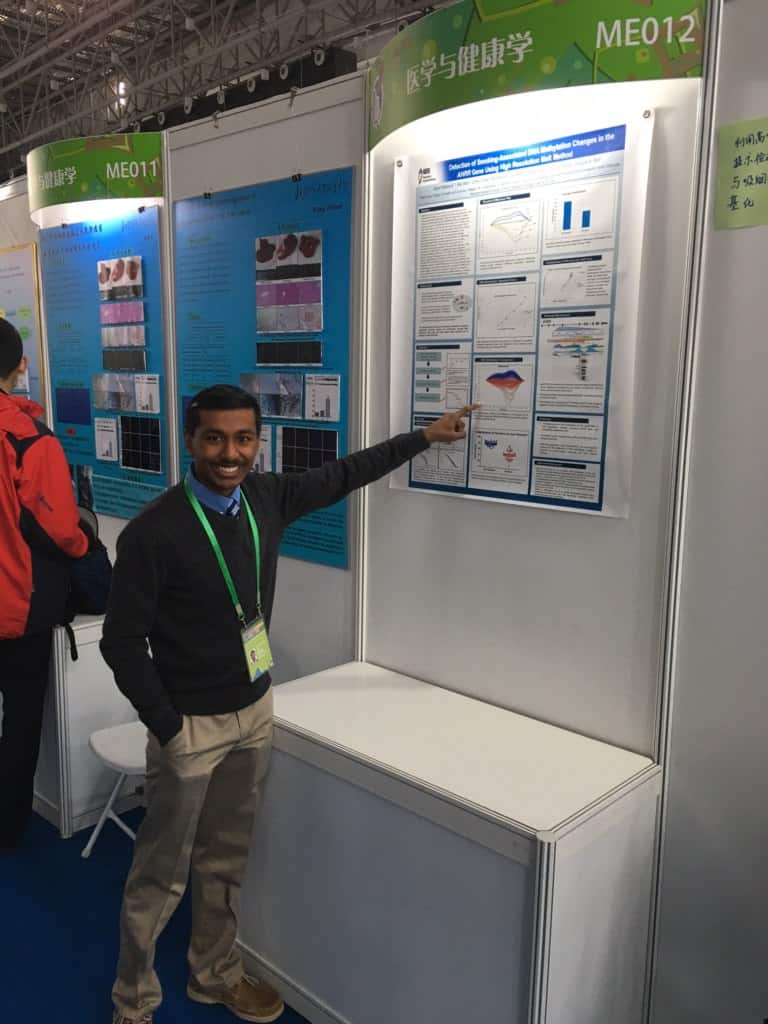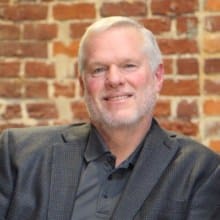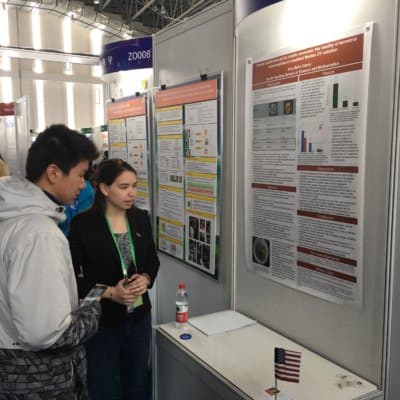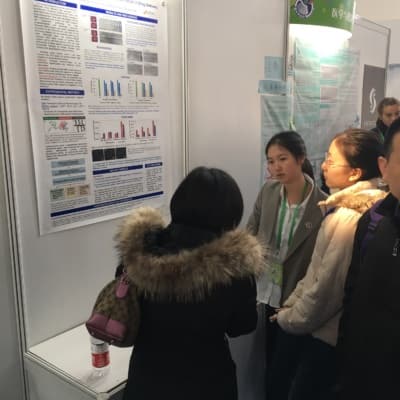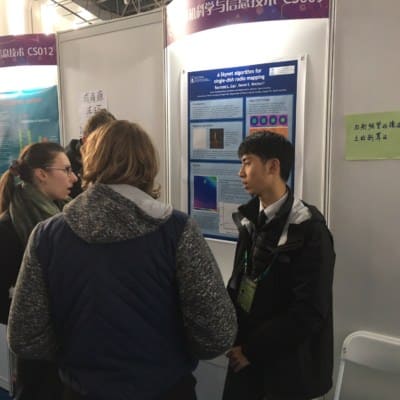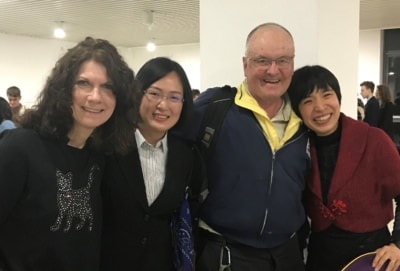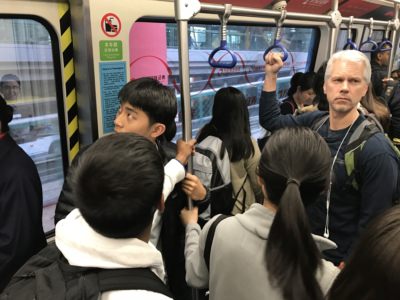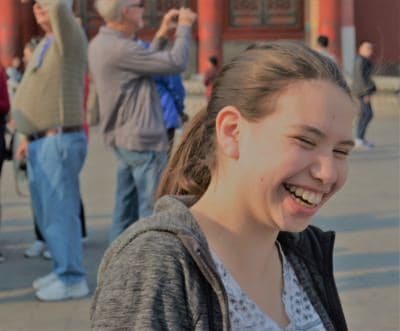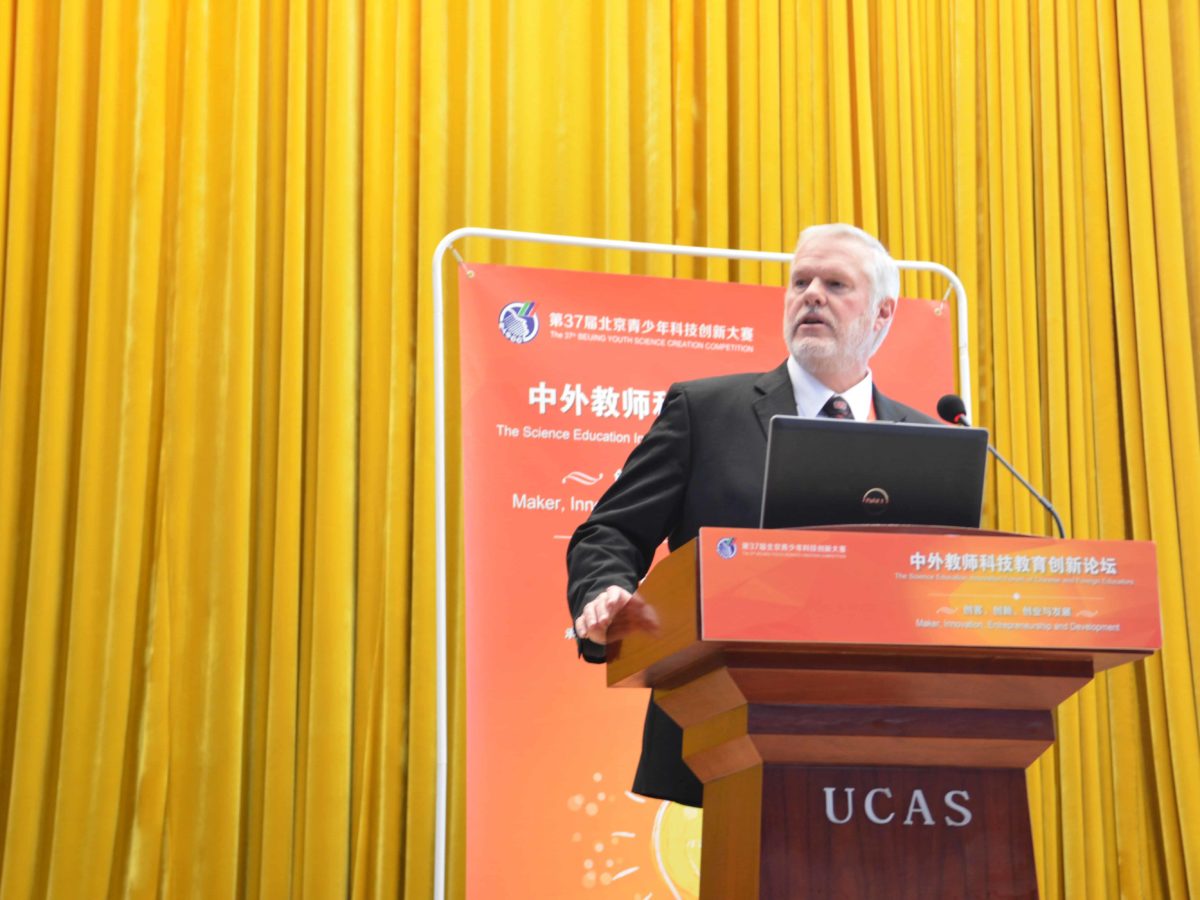

I was honored to speak today at the Science Education Innovation Forum of Chinese and Foreign Educators, part of the 37th Beijing Youth Science Creation Competition. The forum brought educators together from around the world to think about the opportunities and challenges facing science education. N.C. State has always valued students creative ability and entrepreneurship. Thanks to creativity, many graduates start their own businesses. It all starts with selecting, admitting, and engaging talented students, and then finding ways to change their lives building on the classroom experience to create lifelong learners.
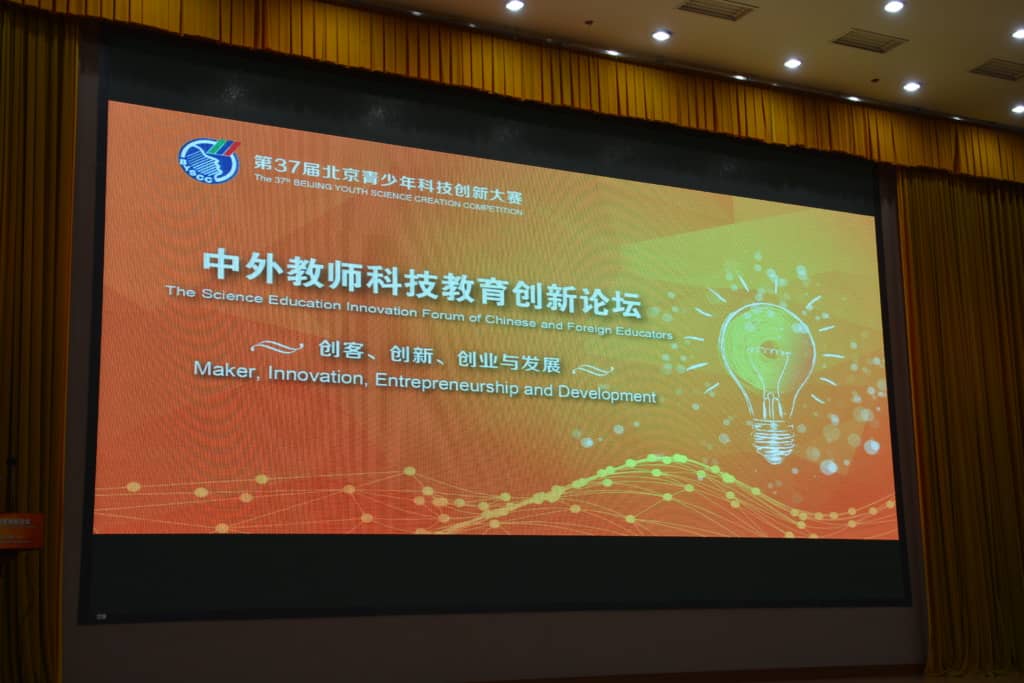

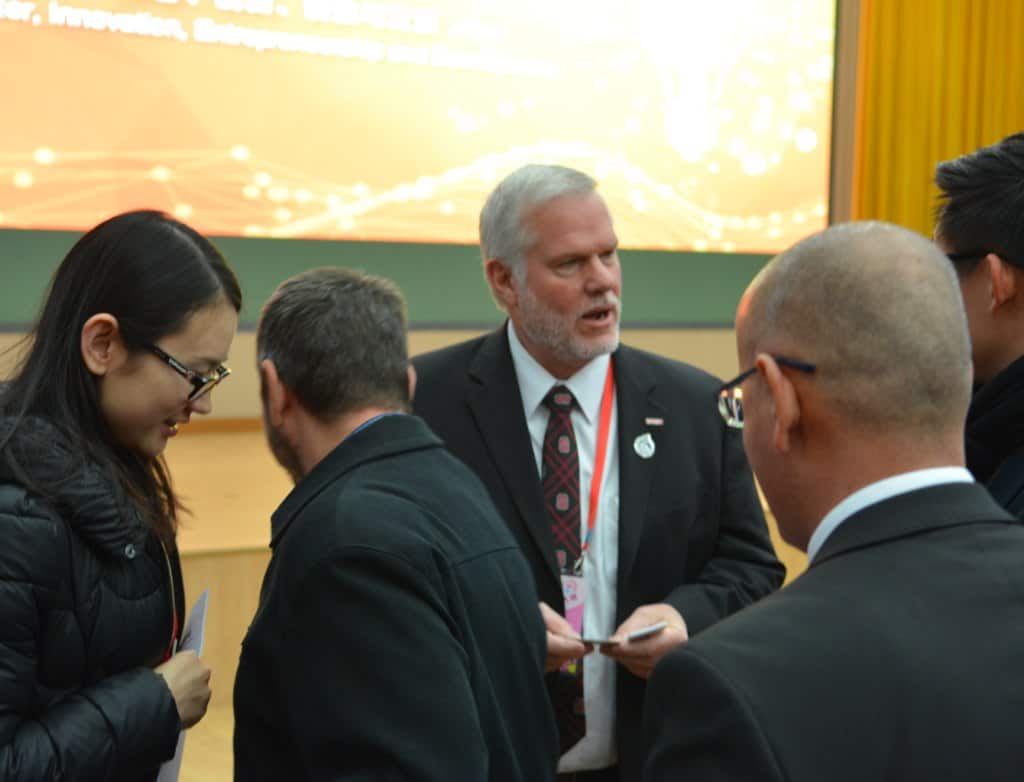

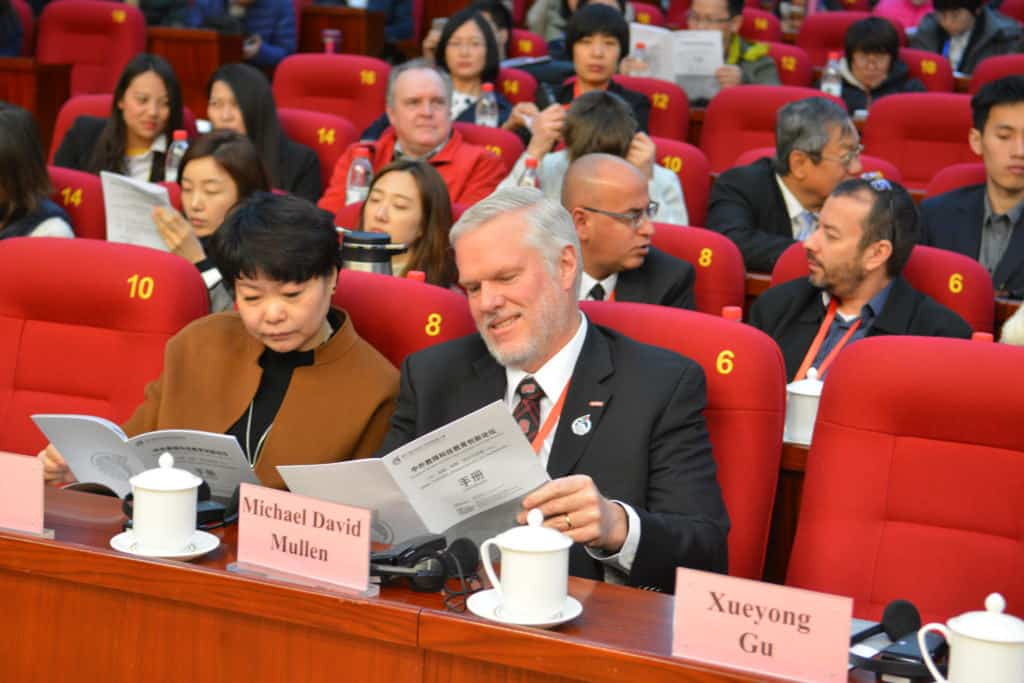

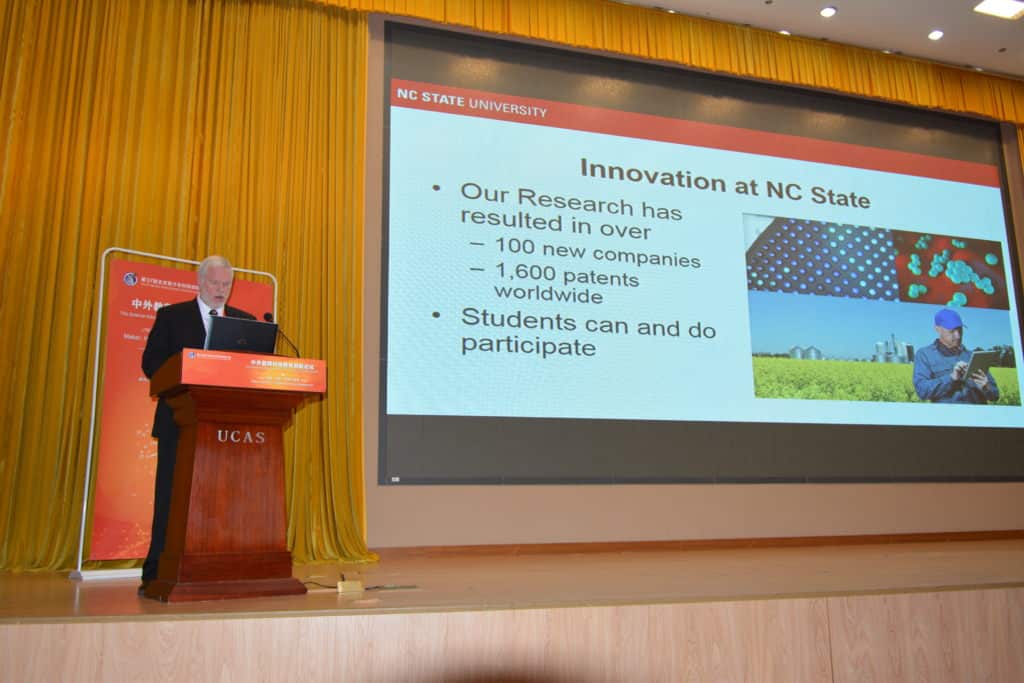

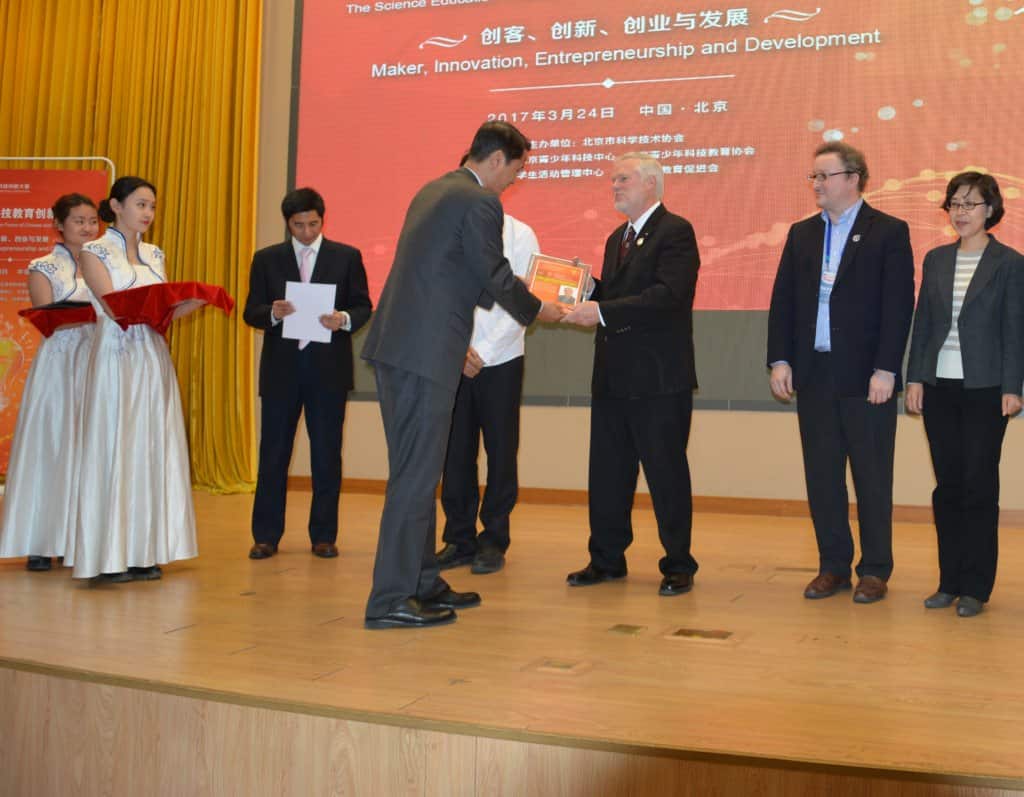

A day of science and the value of creativity and flexibility
We spent this morning with over 150 students from China and around the world, their accompanying adults delegations, and thousands of people from the community. What were we doing?
Talking science, engineering, and math.
The students ranged from middle school students from around Beijing, to 10th, 11th and 12th grade students from around the world.
Our students, Arjun, Ana Sofia, Dory, and Raymond, all did a great job of sharing their research with a wide variety of visitors. I am particularly impressed by our students and their abilities to explain their work to a variety of audiences and to answer questions that come up during their discussions. While they are presenting, a question can sometimes arise that redirects the conversation. I find that our students are able to handle these redirects with ease, a mark of scientists who know their work, and supporting research, well.
I say this about our students because of the contrast with some of the presenters I interacted with today, particularly from China. During my conversations with several students it was clear they knew their methods and statistics well, but, when I stopped them during their presentations to ask questions about their data, they sometimes had a difficult time providing explanations or potential reasons for data that seemed odd. For some, there seemed to be a rigidity around presentation that our students do not exhibit. I chalk this up to an environment that our students have been in that has allowed them to ask and be asked, to explore and learn in a variety of ways, of having multiple interests, and interactions with students and mentors from many backgrounds. Perhaps what I am trying to say is that our students function well in a non-linear way.
This was an exciting morning. The range of work and creativity exhibited by all the participants was impressive. To be surrounded by budding young scientists who are doing work I could not have imagined at the same age is truly inspiring. As Arjun mentioned to me, all of our young students have this ability, but not all have the environment in which to develop. In a world that needs science now more than ever, we must strive to provide that environment to evermore students. We must continue our work to expand opportunities for our students to access mentoring and participation in science, engineering, and creativity activities and competitions at an early age.
